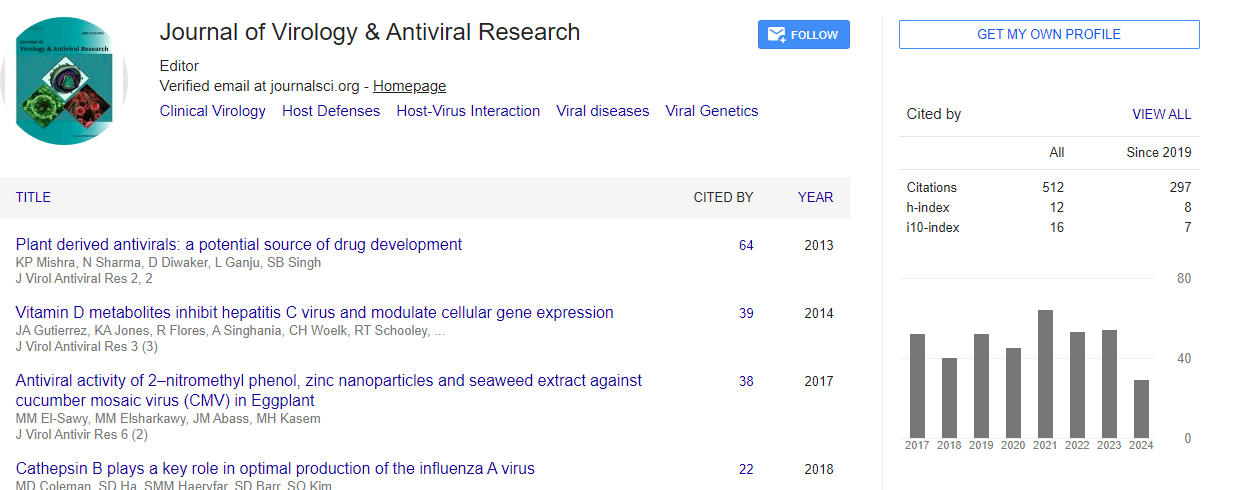Assessment of sexually transmitted infection risk and health service access among men having sex with men in Addis Ababa, Ethiopia: Qualitative study
Meron Fekade
University of Gondar, Ethiopia
: J Virol Antivir Res
Abstract
Introduction: Heterosexuality is the most common form of sexual orientation in the world. Other forms of sexual orientations such as homosexuality, bisexuality and asexuality are characterized as abnormal and viewed as deviations from normal sexuality. While anyone who has, sex can have a risk of developing sexually transmitted infections and men who have sex with men (MSM) are even at greater risk.
Objective: To assess sexual transmitted infection risk and health service access among men sex with men in Addis Ababa.
Methods: Qualitative study with phenomenological method was used to assess sexual transmitted infection risk among men having sex with men in Addis Ababa from June 16, 2017- November 10, 2018. Snowball sampling method was used to recruit men having sex with men. Data was analyzed using Narrative Analysis method.
Results: A total of 40 study participants were involved in the study. The main reasons to engage in to this life are the way they grown up, pornography, reading books, taking an open bath in a river, being a rape victim and believing that it is their nature. MSMs were at high risk of STI due to having multiple sexual partners, not using condom, torn of condom, absence of anal condom, swapping of sexual partner, intoxication and using other drugs. Majority of the study participants have visited health center due to their illness. However, some of the study participants prefer to treat themselves at home or use medicine they get from pharmacy without health professionals prescription. There is a reproductive health strategy including family planning, sexual behavior education and others but there is no any special program and/ or policy that address STI risk among MSM. Moreover, health care providers are trained on how to treat STI but not specifically for MSM. However, anyone who develops STI can get the service in health facilities without any discrimination.
Conclusions: The main reasons to engage in to this life are the way they grown up, pornography, reading books, taking an open bath in a river, being a rape victim and believing that it is their nature. MSMs were at high risk of STI and majority of the study participants have visited health center due to their illness. There is a reproductive health strategy but there is no any special program and/ or policy that address STI risk among MSM. However, anyone who develops STI can get the service in health facilities without any discrimination.
Biography
E-mail: meronfekade44@gmail.com
 Spanish
Spanish  Chinese
Chinese  Russian
Russian  German
German  French
French  Japanese
Japanese  Portuguese
Portuguese  Hindi
Hindi 

